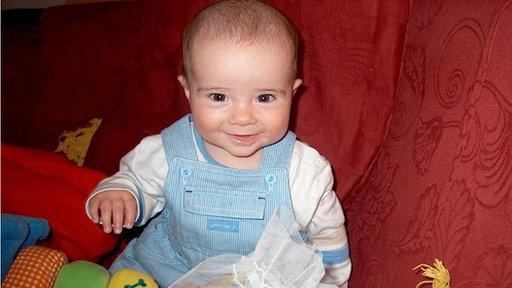23andMe's 'build-a-baby' patent criticised
- Published

How ethical is it to build a perfect baby?
A US patent for a database that uses DNA testing to tell prospective parents which traits their future offspring may inherit has been criticised by experts.
23andMe says its Family Traits Inheritor Calculator can predict the risk of inheriting specific diseases as well as details such as height, weight, eye colour and even personality.
Couples send the firm a saliva sample to see what their babies might be like.
But critics have called the project "ethically and socially treacherous".
Designer babies
The patent suggests the database could also be used by fertility clinics to find appropriate donors.
But the Mountain View, California-based firm was quick to say this was no longer part of its plan.
"At the time 23andMe filed the patent, there was consideration that the technology could have potential applications for fertility clinics so language specific to the fertility treatment process was included in the patent," it said in a blog post., external
"The company never pursued the concepts discussed in the patent beyond our Family Traits Inheritance Calculator, nor do we have any plans to do so."
Instead it described the tool for prospective parents as "an enjoyable way to dip their toes into genetics".
But critics remain concerned that such technology could be misused.
"It would be highly irresponsible for 23andMe or anyone else to offer a product or service based on this patent," said Marcy Darnovsky, executive director of the Center for Genetics and Society.
"It amounts to shopping for designer donors in an effort to produce designer babies.
"We believe the patent office made a serious mistake in allowing a patent that includes drop-down menus for which to choose a future child's traits.
"A project like this would also be ethically and socially treacherous."
- Published17 September 2013
- Published1 October 2013
- Published28 June 2013